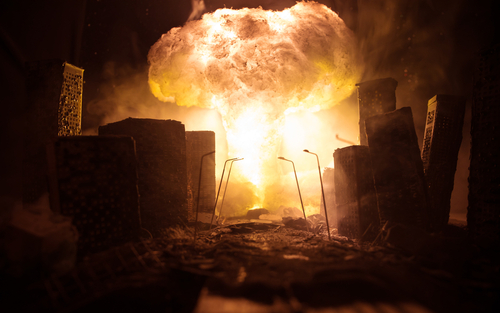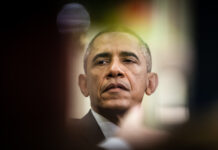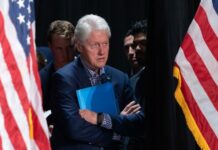
The Biden administration recently announced plans to develop a nuclear weapon that is 20 times more powerful than the one dropped on Hiroshima in 1945. This announcement has raised eyebrows and concerns among many, as it comes at a time when global tensions are high, particularly with China and Russia.
China, a significant global player, has revealed plans to double its nuclear warheads by 2030. Currently, China possesses at least 500 nuclear warheads, meaning that doubling its arsenal would result in over 1,000 warheads. This development, coupled with the Biden administration’s announcement, could potentially lead to a new nuclear arms race, a prospect that is deeply unsettling.
Biden’s announced a new nuclear bomb and he's inviting the Chinese to our nuclear lab to check it out… all after China paid his family 6 million dollars pic.twitter.com/2YCEex7zpY
— Jesse Watters (@JesseBWatters) October 31, 2023
Adding to the unease is the fact that Russia was expected to announce its withdrawal from the 1966 Comprehensive Nuclear Test Ban Treaty. This treaty was designed to ban nuclear explosions worldwide, but it was never ratified by several countries, including China, India, Pakistan, North Korea, Israel, Iran, and Egypt. Russia’s potential withdrawal could further destabilize the already tense global situation.
The Biden administration is seeking congressional approval and funding to pursue a modern variant of the B61 nuclear gravity bomb, which will be designated the B61-13. Assistant Secretary of Defense for Space Policy John Plumb stated this in a press release, highlighting the administration’s intent to enhance its nuclear capabilities.
NEW: U.S. announces new nuclear bomb 24 times more powerful than one dropped on Hiroshima, Japan – Fox News pic.twitter.com/SVAgWPMhDy
— Insider Paper (@TheInsiderPaper) October 30, 2023
This new bomb is said to have a maximum yield of 360 kilotons, which is 24 times more powerful than the bomb dropped on Hiroshima in 1945. Unlike previous gravity bombs, this one would have a tail kit aiding in targeting. If successfully deployed on a city, it could result in the death of one million people.
The Department of Defense (DOD) also stated that the new bomb would be deliverable by modern aircraft and is designed to give the president options to strike at hard and large-area military targets. This statement, however, has done little to assuage fears given the current political climate.
Despite the potential danger, some Republican war hawks are reportedly in favor of producing this powerful bomb. This unity on policy among the Uniparty should be a cause for concern, as it could potentially lead to an escalation in global tensions.
In conclusion, the Biden administration’s announcement of a new nuclear weapon, coupled with China’s plans to double its nuclear arsenal and Russia’s expected withdrawal from a key treaty, paints a worrying picture of the future. It is crucial that these developments are closely monitored and that diplomatic efforts are made to prevent a potential nuclear arms race.











